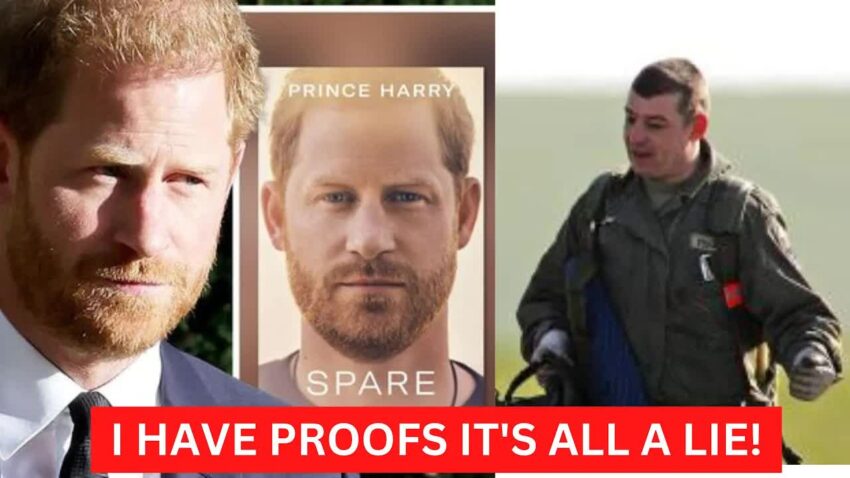Former army instructor, Michael Booley, has refuted Prince Harry’s account of a traumatic training flight experience, labeling it as a fabrication.
The Prince, in his autobiography, claimed that during one of their initial flights together, Booley intentionally caused the aircraft to stall without warning.
However, Booley asserts that all training flight details are thoroughly briefed beforehand, contradicting Harry’s narrative.
Expressing astonishment and disbelief, Booley dismissed Harry’s portrayal of the incident as inaccurate, emphasizing that surprises in the cockpit are non-existent due to comprehensive pre-flight briefings.
He clarified that emergencies, including engine failures, are simulated later in the training syllabus, not as inaccurately depicted in the Prince’s book.
Having served in the military for 33 years and instructed Prince Harry on piloting the Firefly in 2009, Booley maintains a deep respect for the Duke of Sussex despite challenging the authenticity of certain aspects in Harry’s autobiography.
Contrary to the book’s claims, Booley denies ever referring to Harry as “Alt-Wales,” highlighting potential embellishments resulting from ghostwriting.
Recalling fond memories of their time together, Booley praised Harry’s exceptional talent as a student and emphasized their camaraderie, exemplified by shared Sunday lunches and a mutual respect that endures to this day.
He lauded Harry’s flying skills and character, underscoring the Prince’s noteworthy achievements during his military service.
In addition to Booley’s skepticism, another former Apache instructor raised doubts about the accuracy of Harry’s narrative, particularly regarding the briefing procedures for training sorties.
The instructor emphasized the meticulousness of pre-flight briefings and criticized the dramatization in Harry’s book for its departure from standard aviation training practices.
Harry’s disclosure of killing Taliban fighters during his deployments in Afghanistan has drawn criticism from military experts, who caution against exposing fellow soldiers and family members to potential risks of reprisals by terrorists.
The Prince’s revelations have sparked debates within military circles about the ethical implications of divulging sensitive operational details.
As discrepancies emerge between Prince Harry’s recollections and the perspectives of former comrades, questions linger about the veracity of his storytelling and the impact of his disclosures on military protocols.
The contrasting narratives underscore the complexities of recounting personal experiences within the context of public scrutiny and historical documentation.
Amidst the controversy surrounding Harry’s autobiography, the diverging viewpoints of those involved in his military training highlight the nuanced nature of memory, perception, and narrative construction.
The ongoing debate underscores the challenges of reconciling individual perspectives and institutional norms within the realm of public discourse and historical interpretation.
The clash of accounts between Prince Harry and his former comrades underscores the intricacies of memory, interpretation, and representation in narrating personal experiences.
As differing perspectives converge in the public domain, the complexities of historical storytelling and personal recollection come to the forefront, inviting critical examination and reflection.
In the midst of conflicting testimonies and divergent narratives, the essence of truth and authenticity remains elusive, prompting deeper inquiries into the nature of memory, storytelling, and historical documentation.
The unfolding saga surrounding Prince Harry’s military memoir reflects the enduring complexities of human recollection and the challenges of reconciling multiple perspectives within the tapestry of history.
